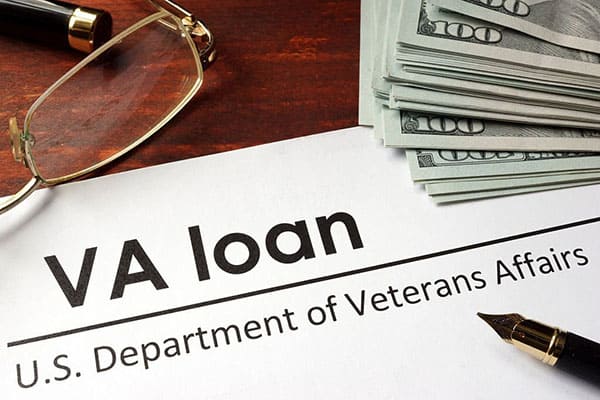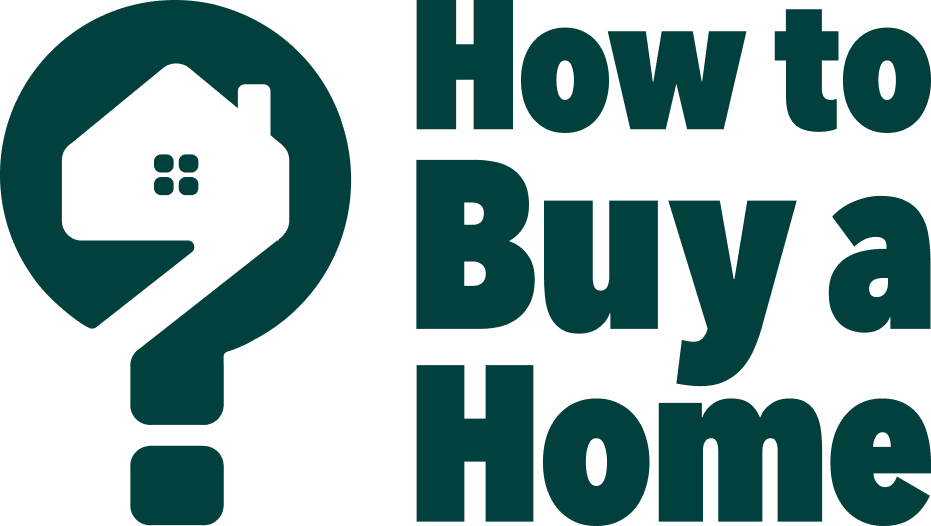
This is the final installment of all the terms you need to know from A-Z. Save this episode and all the A-Z episodes as a reference so you can get all the answers in your home buying journey. Join David Sidoni today, and congratulations for making it to the end of the definitions.
—
First Time Home Buyer’s Terms And Definitions From A-Z – “U,V,W,X,Y & Z”
Glossary Of Real Estate Terms For First Time Home Buyers – U Through Z
To all of you who complete this, congratulations. You’ve made it to the end of the definitions or perhaps you’re reading this in 2025 because you need to know the meaning of one word that starts with the letter W. What’s it like in the future? Who’s the president? Is it Dwayne Johnson, Beyoncé, or Kevin Hart? Here in the present, it’s time to finish the alphabet glossary. That’s right, U, V, W, X, Y, and Z.
—
What’s happening, everybody? How are you doing, my How To Buy A Homies? I am the unicorn wrangler, your diehard advocate for you, the first-time home buyer, and the de facto leader of the revolution to change the real estate industry by giving you the power back. That’s right, power to the people so you can have the first-time home-buying experience that you deserve. We’re going to crush your confusion and find the best way for you to beat this rig’s system.
Now, onto the definitions. It’s the very end. You made it. U, V, W, X, Y, and Z starting with U. Your first U is Upfront costs. When you watch the cop shows and they’re looking to do a sting and they’ve got a John who’s going to an undercover cop that’s being a lady of the night and they tell everyone, “Remember, nobody goes in until he hands you the money,” that is an example of an upfront cost except nobody got screwed.
When you’re buying a house, screwing can happen to you in multiple different ways. You have read every episode of the A to Z Terms and Definitions so you’re probably going to avoid most of the screwing. Upfront costs are the fees that a buyer pays once you open that contract and before you close on the home.
These are the fees that you do not get back if you bail on the deal. You still have your protection period. It’s the option, condition, due diligence and contingency period. That’s the time that you can pull out the deal to get back your earnest money deposit but you’re still going to have to put out these upfront costs to take a closer look and determine if you’re in or out on that property.
Most of the time, these are going to be your two main costs, your inspection and the appraisal. You pay for this upfront and when you’re in the transaction and you don’t get the money back, it’s no free looks. You got to pay to look under the hood. Our next U is Underwriting. This is one that you may have heard of before but let me break this down for you. I want to be clear on this.
You get loan approval to buy a house. Are you ready to be confused? That loan approval is not the full approval. Did you get that? Yes, I said that. If you’ve been paying attention, you probably know that I say this over and over again. When you start your process, you’re going to go out and find a unicorn realtor. You’re then going to get recommendations to great unicorn lenders and then you and your team are going to put a full plan together. You’re going to fix your finances, get your credit, get your debt all set and then you want to make sure that you look perfect for a bank. You then get the full loan approval. That’s what I tell you to do.
Get approved for a loan and then you can go out and shop for homes. This is still correct but once you’re in contract, then the loan goes to different people. That’s where the underwriters have to underwrite your home. That happens after the offer is accepted and they have to approve your loan all over again. It goes through what they call underwriting by an underwriter. That is not your mortgage pro. See? Isn’t real estate fun? Hang with me. This is why you read.
Let me explain. That is too much. You got to watch The Princess Bride. If you’re not walking around with $400,000 cash in your pocket, then you have to get a loan. When you get a loan and you’re getting ready to go out and shop, you’re going to get full loan approval. Once you get under contract, then the loan goes to underwriting and gets underwritten. That is the process where the bank that you’re sending your request up the latter of underwriting is where all the bean counters there dot all the i’s and cross all the t’s. They verify and re-verify everything before they cut the check and give all the money to the seller.
I know that it’s confusing. There’s got to be another one of those times when you feel like you can’t get any strain answers in the whole first buying home process. Does it stress you out? You don’t like that? You break it into hives trying to figure out how to put this into the little security blanket that you call a spreadsheet. Truth bomb time. It’s too bad. Suck it up. Deal with it.
When you buy a home, you get estimates, approximations and conditional approvals with contingencies attached to everything. Even if you have all cash to offer, you still have to deal with estimates and approximations because the seller is going to have all their conditions, approvals, contingencies and negotiations. That’s the process. This is the way it is.
[bctt tweet=”When you buy a home, even if you have cash to offer, you still have to deal with the seller and all their estimates, approximates, and conditional approvals with contingencies.” via=”no”]
I didn’t create it. I just know how to help you navigate it. Here’s the process. A mortgage broker is going to run all your numbers. They’re going to find the best programs and loan rates for you. They’re then going to give you approval but that doesn’t mean that they have the money sitting there in a drawer right on their desk now that you agree to the loan. When you find a house, they pull it out and give it to you. No.
When you find a home, the loan gets sent to a bank or an investor. They’re not even going to look at the loan approval the lender has for you until you have a signed contract. When you’ve got it, it goes off to underwriting. They review the file and the reason they need to wait is that they need to get the exact home. That’s where they’re going to verify everything about the home and then you, which means there is a strong possibility that you are going to be resending every document you already sent in.
That underwriter is going to take a look at every penny you’ve ever earned or spent. There are several different underwriters. It might happen several different times and they could ask and re-ask. That’s the way it works. You don’t like it? Cool. Go out, rob a bank and pay cash. What the underwriter does is they’ll review and re-review your credit, documents, finances and ability to pay the mortgage. They’re also going to review other factors related to the home.
They’re going to do a title search in the appraisal, and the multiple underwriters will then decide to approve or deny the loan. You wrote the offer on this property because you had what you thought was a full loan approval, but the underwriters have to approve your approval. Fun, right? Here’s the way that you work this. Gather all the paperwork with the mortgage broker before you ever go look at any homes.
Once you get that approved from them, keep all that stuff in an electronic file that you can get to. Hopefully, probably one that you can add to as well because you’re going to be asking the underwriters for things that you’ve already sent as well as some new things so keep an editable PDF right there. Put it on your desktop. Get ready throughout the entire process. They’re going to ask to see current and new pay stubs as well as bank statements.
Don’t be surprised if you are days from getting your keys and some underwriter asks you for something. As it gets to the end, these are what we call the final conditions. It could be a pay stub you got yesterday or a verification of a deposit that you made that morning. Every last detail to the very end. The underwriters do an approval on your approval so that they can give you the money because your lender doesn’t have the money in their desk drawer.
On a side note, there is an underwriting procedure called the verification of employment. I need you to be ready for this. If at the office holiday party you happen to piss off Sally in HR, go and make nice with them immediately. After you’ve done all the stressful negotiations and removed all your contingencies right at the very end, days away from getting your keys, the underwriter needs to confirm that you haven’t been fired before they wire the money to close the deal.
Make nice with Sally, Fred, or whoever else you pissed off in HR. Don’t let them take too long to return that verification. I’m talking 24 to 48 hours if they don’t return, and make sure that they let the underwriter know that you still have a job. I’ve seen this screw up the closings of deals. Yes, sometimes the underwriters will wait until the last minute for that verification.
If the HR person sees your name on an email and takes too long to call back, they’re not going to wire the money and you might not close on that home. Be nice and be ready. I recommend you give them a heads-up. As you get started, talk to your lender moving forward. Find out exactly what the underwriter needs and give your lender permission to text you day or night because anytime the underwriter asks for anything, your response should be to jump as fast as you can and get it back to the lender.
Moving on to our next U. This is the Universal Residential Loan Application. What is that? Remember when you filled out an application to get an apartment? This is the adulting version. Understand that there’s going to be a standard version when you’re applying for your mortgage. It’s called the Universal Residential Loan Application.
That’s where you’re going to be giving them all your information like your income, assets, liabilities and the description of the property you want to buy. Another term that’s a U term that you might need to know is an Unsecured loan. This is good for you to know now because it’s also something that is a term you hear when it comes to your credit cards. You can get a secure credit card where you give them a deposit or you have an unsecured credit card. What that means is loans that are not backed up by collateral.
Another U that a lot of people ask me about, especially people living in rural areas, is USDA loans. These are zero-down payment loans. People ask about zero down payment loans all the time and the two main ones are USDA and VA. They’re a great way to get you into that American dream if that property qualifies for that type of loan.

I live in Southern California by the beach and in the suburbs. I have no idea. I have never done one of these loans before but I’ve had plenty of unicorns that have helped people way out in the corn fields or wherever you rural people live. I love you. It’s all about diversity and inclusion. They’re going to guide you through and give you all the information that you need on a USDA loan. I screw up every time I try to say that because all I can think of is beef, USDA beef.
They also have another fun acronym called an RDA loan program. What that means is that the USDA subsidizes the interest on the loan if the applicant fits in the right income verification or income qualification, I should say. It’s for rural areas. It’s like a farmer subsidy. It’s not my jam so talk to your local rural area unicorn.
My next U, and you’re never going to believe what I’m going to say, Unicorn. I’m going to throw it in here real fast. If you’re reading this show and you never know that I explain what a unicorn is, unicorn, realtor and lender. It is rare and mythical, sometimes difficult to find a local professional in your area that has real experience, yet is willing to give their time, energy, effort and compassion to you as a first-time home buyer. Believe it or not, it doesn’t happen that often in this business.
It’s a beautiful combination. They offer expertise and empathy. They’re going to save you money and help you get the best deal, not just in the negotiating, shopping and putting in the offer for the home but in connecting you early with a unicorn mortgage pro so that you can create the best options for you. Planning equals options and options equal the best outcome for you and your family.
Moving on to the end of the alphabet, we go to the letter V. My favorite V word in real estate is the VA Guaranteed Loan. VA loans used to be called by that all the time, VA Guaranteed Loans. It’s a pretty important adjective that everybody seemed to have dropped when they’re talking about VA loans. They’re VA Guaranteed Loans. Buying a home can be so freaking daunting and overwhelming. It’d be nice if they kept that word in there as it was intended to help give a little comfort to you guys out there trying to figure all this out.
I should say for you guys who are either in the military or were in the military, these are incredible loans. Not only are they fantastic loans on their own but because the underwriters know the government guarantees this, the Department of Veteran Affairs, they’re super stoked about it because they know they’ve got some coverage to protect against the borrower defaulting on the loan.
I’m sorry to all of you civilians. These are only available to the military, active and retired and occasionally, some spouses are eligible. It’s a low to no down payment. You can get competitive rates and fees. The big one is there’s no PMI. I love the fact that we’re doing something great for all our vets out there. The VA guarantees the loan low risk to the lender.
They’re generally only available for you for your primary residence but occasionally, you can use them if you’re going to live in one of the multiple units as long as it’s below four units but that could be different in your area and sometimes not. Everything qualifies for a VA loan but if you find out that the property you want does qualify, they’re incredible. Zero down, no PMI. Lenders love them because of the government guarantee. They’re probably the best loan that you could ever get. Thank goodness we did that for our vets.
If you qualify and you’re reading this, lean in close. Let me set you up for life. I’m talking to all of our vets. You made the ultimate sacrifice and I know you’re getting paid jack squat for your service but with the right guidance, you can be set up for life by owning property in the places where you’re stationed. You’re going to be able to get in for zero down. Most of the time, you can pay all or part of the mortgage if you’ve got some housing stipend or maybe even with what’s left over in your paycheck.
This is a no-brainer, especially if you’re reading this in 2022 and 2023 because we’re going into a correcting market where the buyers have the power. You can make yourself set for life. Don’t spend your money living in the barracks. If you got enough money coming in, there are a ton of things that you can do to figure out how to use a VA loan because they’re finally giving you something back.
There are a lot of details about it and I know that there are some government funding programs out there. To be honest, if you go to them first, you’re going to think this is way too hard. That’s probably because they’re run with all the efficiency of the VA hospital. It sucks and that’s not right either but lucky for you. There are tons of qualified people all over the country that exclusively cater to military buyers, mostly because many of them serve themselves.
I interviewed one of these guys in episode 32. When I go to conferences and I meet realtors all over the country, I find all kinds of unicorns, both realtors and lenders that have dedicated a large part of their business to you. Are they getting rich on it? Not really. This is a passion project for them and they love it. They’re VA specialists by every base in the country. Reach out to me if you want a connection. You’re not going to regret it. Jump on this when you can. Set yourself up for life with real estate.
I’m telling you, this is for you. There are pros out there that are ready and excited. Don’t think you’re too small potatoes for this. Some people want to help you just as much as I get excited to tell you all about this. You’re going to get millionaire-style service because they earnestly believe that you deserve it and they are right.
Our next V is I’m not nearly as passionate about but I still need to tell you about it. It’s called a Variable interest rate. This is something we’ve discussed in other episodes before but it’s a V and this time, they started the word with V so Variable interest rate. It comes when you get an ARM or an Adjustable-Rate Mortgage. What a variable rate means is it’s different from a fixed rate because a variable rate is going to adjust periodically. Not fixed, not 30 years.
You better understand every single bit of a variable rate if you’re going to jump into it. Talk to your unicorn lender. Don’t get into it unless you know exactly what you’re talking about. Don’t be scared just because I said that. For some people, especially with interest rates where they are at 7%, this could be very useful to you if you know what you’re doing.

Let me go through the letters. T, U, V, W. For W, our first one is a Walkthrough. This is a common clause in a sales contract that happens at the end of your transaction. It allows the buyer to go in and examine the property before being purchased. It’s a specified time, usually a few days before closing. This is what you’re going to do. You’re going to be able to walk through the property and make sure everything looks the same. If you’re out of town, your realtor can FaceTime.
I’ve done that quite a bit. Walk around and show them everything is okay. No one took a sledgehammer to the walls. You then say, “Awesome, let’s go.” It’s also the time when if they did any repairs, instead of you getting credit, that’s where they’re going to check to make sure the repairs were done correctly if you haven’t done so already.
We go to our next W, Warranties. All I could say about warranties is when they tell you that appliances or things in the home come with warranties, don’t count on any of them transferring from owner to owner, unless you get that confirmed from the company, not from the realtor or seller. This includes the big stuff like solar. That’s the end of the W’s. We go to X, Y and Z and there’s nothing.
As my dad would say, “It’s all she wrote.” You did it. You made it through the entire alphabet of terms that you should be familiar with when you’re planning to buy your first home. Is it possible that I didn’t hit every single word associated with real estate? Yes, it is but if you follow along and went all the way A to Z with me, you are going to be light years ahead of most other first-time home buyers.
The cool thing is it’s here for you to access anytime for free. I got to tell you, gathering these and breaking them down for you have been lots of fun. It’s also been a lot of work too. If you want to keep getting more free content like this, then I’m going to graciously ask you two things. Number one, tell me what else you want me to explain. I could go on forever and talk about tons of different first-time home buyer topics but what do you want to know? Go to HowToBuyAHome.com. Go to Ask David and ask me your question. I don’t know what you want to know about unless you tell me.
Number two, my second humble request is please share this show with your friends and family. I do give all this information out for free. No paywall, no nothing. Just come on into the show because this revolution means a lot to me. It’s a big passion project. Like all revolutionaries, I’m fighting against the man. This is not a typical way for a person to make a living.
The more people know about this, that means the more people that I can help and that’s going to help keep things going here. There are a ton of people that reach out to me who have read the stuff for free, do stuff on their own and close on the home. I love hearing that. It gets me very excited, truly. I get emails all the time from readers that are getting ready to close on their homes and they want to thank me for the guidance. That is very exciting to me. That is the goal of revolution.
Share this with others so that more and more people will join the revolution and read the show. I know that some of it is going to find itself over to me, and my business will grow a little bit with the trickle down, but I would love everybody, no matter where they are, to start their plan. I’m telling you how to do it for free so that eventually you’re going to be able to wake up, look in the mirror, and go, “You can do this.”
Important Links
- Episode 32 – Past Episode
- Ask David
This podcast was started for YOU, to demystify things for first time home buyers, and help crush the confusion. After helping first timers for over 13 years, I knew there wasn’t t a lot of clear, tangible, useable information out there on the internet, so I started this podcast. Help me spread the word to other people just like you, dying for answers. Tell your friends, family, and perhaps that random neighbor you REALLY want to move out about How to Buy a Home! A really easy way is to hit the share button and text it to your friends. Go for it, help someone out. And if you’re not already a regular listener, subscribe and get constant updates on the market. If you are a regular and learned something, help me help others – give the show a quick review in Apple Podcasts or wherever you get your podcasts, or write a review on Spotify. Let’s change the way the real estate industry treats you first time buyers, one buyer at a time, starting with you – and make sure your favorite people don’t get screwed by going into this HUGE step blind and confused. Viva la Unicorn Revolution!
Instagram @DavidSidoni
Tik Tok @howtobuyahome

